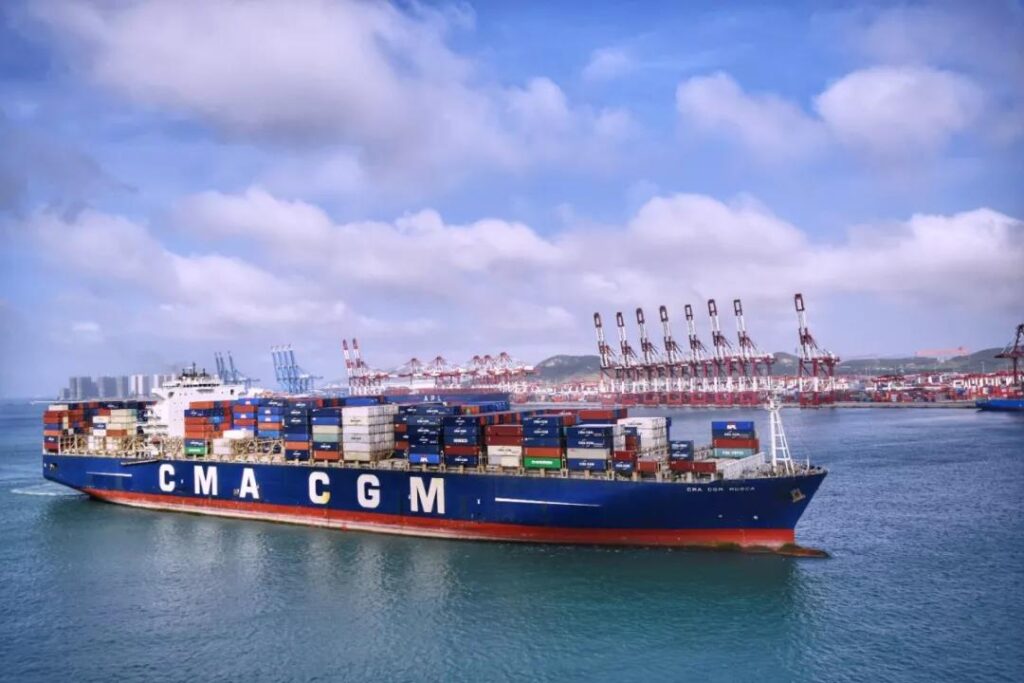- By TOP CHINA FREIGHT
- July 18, 2025
- Shipping
Italy is one of China’s key trading partners in Europe, importing machinery, electronics, textiles, consumer goods, and more. With increasing demand for efficient supply chains, hiring a freight forwarder from China to Italy is critical for importers who want fast, affordable, and compliant shipments.
Whether you’re new to international trade or expanding your supply chain, this guide will help you understand how to find the right freight forwarder and what to consider when shipping from China to Italy.

1. Why Work With a Freight Forwarder?
A freight forwarder is a logistics partner that manages the transportation of goods from the seller in China to the buyer in Italy. They coordinate every step, from booking space on a vessel or flight to handling customs documentation and final delivery.
Key services include:
- Booking sea, air, or rail freight
- Export and import customs clearance
- Cargo consolidation (LCL) and full container load (FCL) options
- Door-to-door or port-to-port delivery
- Warehousing, packing, and labeling
- Insurance and shipment tracking
Freight forwarders help reduce errors, avoid delays, and ensure full compliance with Chinese export rules and EU import regulations.
2. Shipping Options From China to Italy
Depending on your budget, timeline, and cargo size, you can choose from several transport modes:
| Mode | Best For | Transit Time | Cost |
|---|---|---|---|
| Sea Freight | Bulk shipments, low urgency | 30–40 days | Low |
| Air Freight | Urgent or high-value goods | 5–10 days | High |
| Rail Freight | Mid-sized cargo, cost-effective speed | 18–25 days | Moderate |
Sea freight is the most popular choice for large orders, while air freight suits urgent deliveries. Rail freight from China to Europe, ending in Italy via truck, is gaining popularity for its speed-cost balance.
3. What to Look for in a China–Italy Freight Forwarder
The forwarder must understand:
- EU customs regulations and product compliance
- EORI number setup and VAT rules in Italy
- Required documents: commercial invoice, packing list, Bill of Lading or Air Waybill
Look for forwarders with offices or agents in both China and Italy. This ensures:
- Clear communication
- Faster resolution of issues
- Stronger control of logistics across borders
They should offer:
- Accurate HS code classification
- Customs declarations under Italian law
- Assistance with import duty and VAT payment
Ensure the quote includes:
- Freight cost (air/sea/rail)
- Handling, documentation, and local charges
- Optional services like insurance or warehousing
4. Where to Find Reliable Freight Forwarders
| Platform / Source | Description |
|---|---|
| Alibaba / Made-in-China | Many suppliers have trusted forwarder partners |
| Freight Marketplaces (e.g. Freightos, ShipHub) | Compare quotes and transit options |
| Google & LinkedIn | Search “China to Italy freight forwarder” and check reviews |
| Industry Referrals | Ask experienced importers or business networks |
| Trade Fairs & Exhibitions | Attend logistics expos in China or Italy for connections |
5. Major Shipping Routes from China to Italy
| Origin City (China) | Destination (Italy) | Mode | Transit Time |
|---|---|---|---|
| Shanghai / Ningbo | Genoa, La Spezia | Sea Freight | 30–40 days |
| Guangzhou / Shenzhen | Milan, Rome (via Malpensa Airport) | Air Freight | 5–9 days |
| Chengdu / Xi’an | Milan (via Germany, Poland, then truck) | Rail Freight | 18–25 days |
6. Questions to Ask Your Freight Forwarder
- Do you offer door-to-door or DDP (Delivered Duty Paid) service?
- Can you handle both Chinese export and Italian import customs?
- What shipping methods and transit times do you recommend?
- Are you experienced with EU product compliance?
- Do you provide cargo insurance, consolidation, or warehouse services?
7. Red Flags to Avoid
Extremely low quotes without service breakdown
- No verifiable company license or registration
- Poor communication or delays in responding
- No experience with EU customs
- Lack of shipment tracking or insurance options
Conclusion
A reliable freight forwarder is your key partner when shipping goods from China to Italy. They will help you choose the best transport mode, handle all documentation, manage customs clearance, and ensure timely, safe delivery.
Whether you’re importing machinery, fashion, electronics, or furniture, taking the time to choose a professional freight forwarder will reduce risks, control costs, and simplify your international logistics process.
Need a Shipping Quote?
Click below to get a free, no-obligation quote from TJ China Freight.
We’ll respond within 24 hours with the best shipping options for your cargo.
FAQ:
Q1: How long does it take to ship from China to Italy by sea?
Sea freight usually takes 30–40 days, depending on origin and route.
Q2: Do I have to pay import fees in Italy?
Yes. You’ll need to pay customs duties, Italian VAT (22%), and possibly eco taxes or other regulatory fees. A freight forwarder can guide you through cost estimation and payment.
Q3: How do I avoid being scammed when importing from China?
Always work with verified suppliers and reputable freight forwarders, use secure payment methods, and request documentation such as commercial invoice, packing list, and tracking numbers. Avoid paying large sums in advance to unknown agents.
Q4: Does Alibaba ship to Italy?
Yes, Alibaba suppliers can ship to Italy, but Alibaba itself is a marketplace—not a shipping company. Shipping depends on the supplier and the shipping method they offer (sea, air, express, etc.). You can also arrange your own freight forwarder to handle shipping from the supplier’s warehouse in China to your destination in Italy.
Q5: What is not allowed to be shipped to Italy?
Italy restricts the import of:
- Counterfeit products
- Hazardous chemicals
- Unapproved medical devices or food items
- Electronics without CE certification
Always confirm with your freight forwarder before shipping.
